What is a ShenEd Town Hall Class?
At the Town Hall, students studying the same topic explore it from the lens of their disciplines, and, in the process, promote greater understanding as well as creative and analytical thinking.
Classes designated as Town Hall (TH) are existing ShenEd classes that satisfy the approved ShenEd learning objectives within their designated sphere. Professors are given the option to add a series of Town hall signature assignments to their course designed specifically to place the skills, knowledge, and viewpoints students develop in their ShenEd classes into larger social, political, and global contexts. Students taking a ShenEd Town Hall class approach one of a series of social issues introduced in the Going Global First Year seminar common event series — such as immigration, poverty, gender based violence — from their class’s academic perspective. This academic perspective can come from any ShenEd sphere. The semester culminates in a Town Hall event where students from the different classes group together according to a common social issue and discuss that issue from the perspective of their ShenEd class with students from other ShenEd classes.
Explore ShenEd Town Hall
- Faculty incorporate a series of assignments into their existing class learning objectives that ask students to focus on one global issue for that entire series.
- Faculty members adapt assignments that fit the objectives of their classes.
- The faculty members and their students agree to attend the one-time, three-hour town hall event.
A statistics town hall assignment will look very different than a dance town hall assignment which will look very different from a political science assignment. The commonality is the issues students focus on. For example, a student in statistics and a student in a dance class both choose “homelessness” as their global issue. The dance assignment requires students to choose an object relevant to the global issue they researched and choreograph a dance focused on that object. A statistics assignment requires students to survey a chosen population, such as the campus community, to determine the community’s awareness of homelessness in the area.
- The specific Town hall signature assignments align with individual course learning objectives so Town Hall faculty follow the same assessment protocol as other classes in the ShenEd program.
- All Town Hall students complete a final paper after the Town Hall event. A random sample of these will be collected. Rotating faculty on the ShenEd committee will apply an adapted AAC&U Integrative Learning rubric to assess Town Hall’s impact on integrative learning in ShenEd.
If you are a faculty member interested in taking part in the Town Hall program, please contact Eric Leonard, eleonard@su.edu.
Hear What Students are Saying About Town Hall
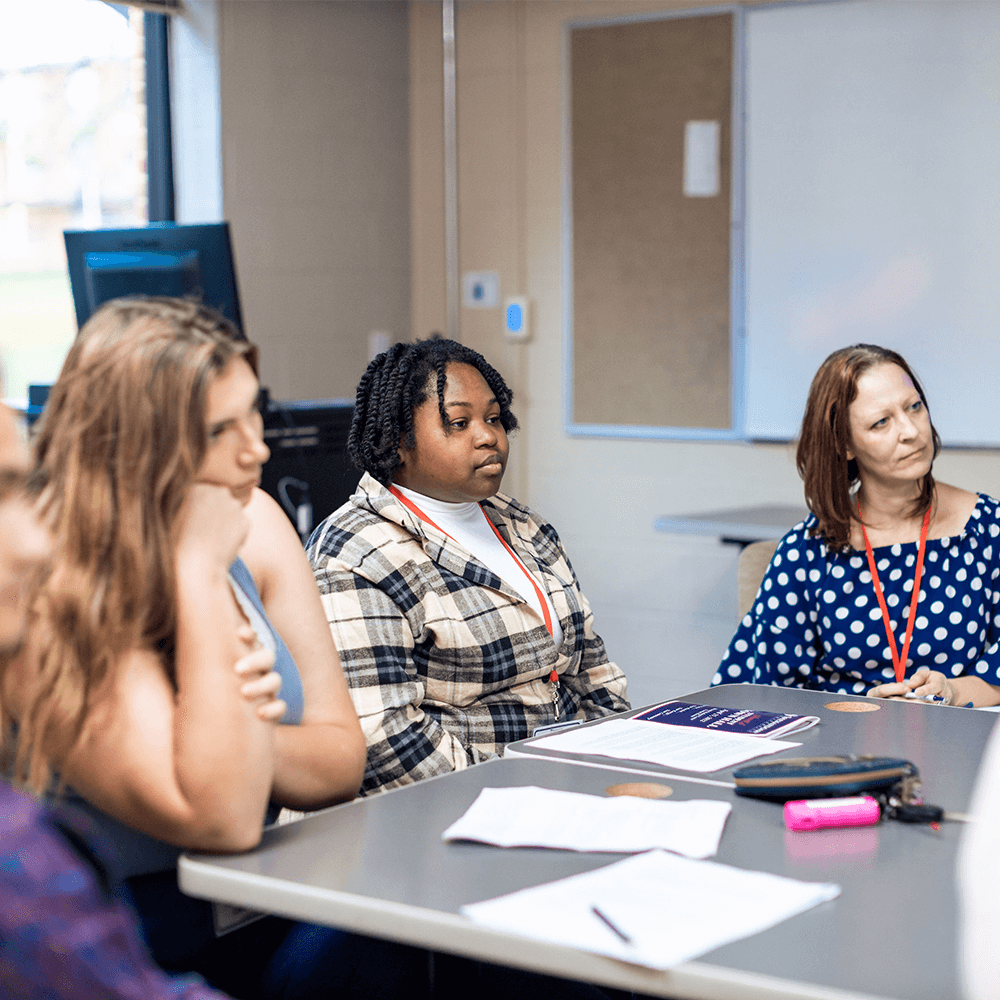
The whole event was great, but just the fact that we were able to have an educated conversation amongst other peers about important issues in society, made the time that much more valuable.
We need a lot more of this in society and we need to able to have educated conversations without bashing each other for not being on the same side or for not having the same perspectives towards a topic.
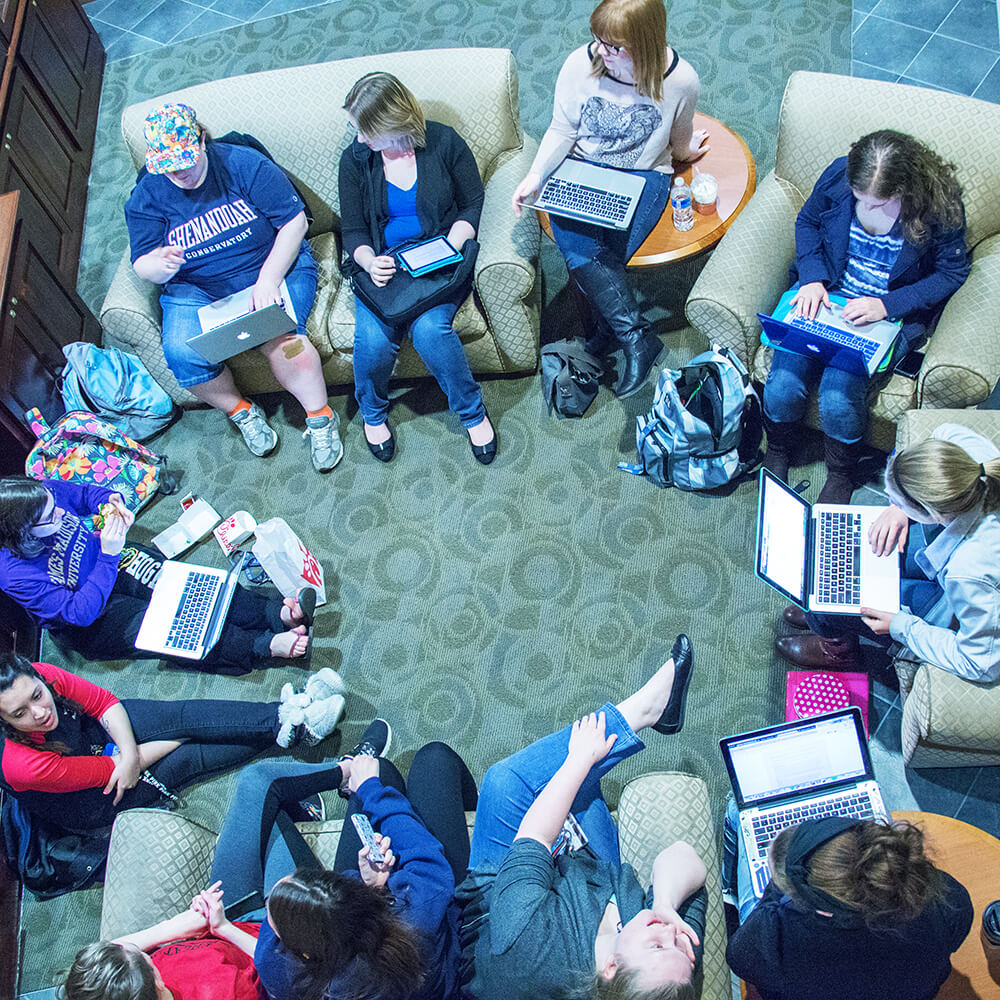
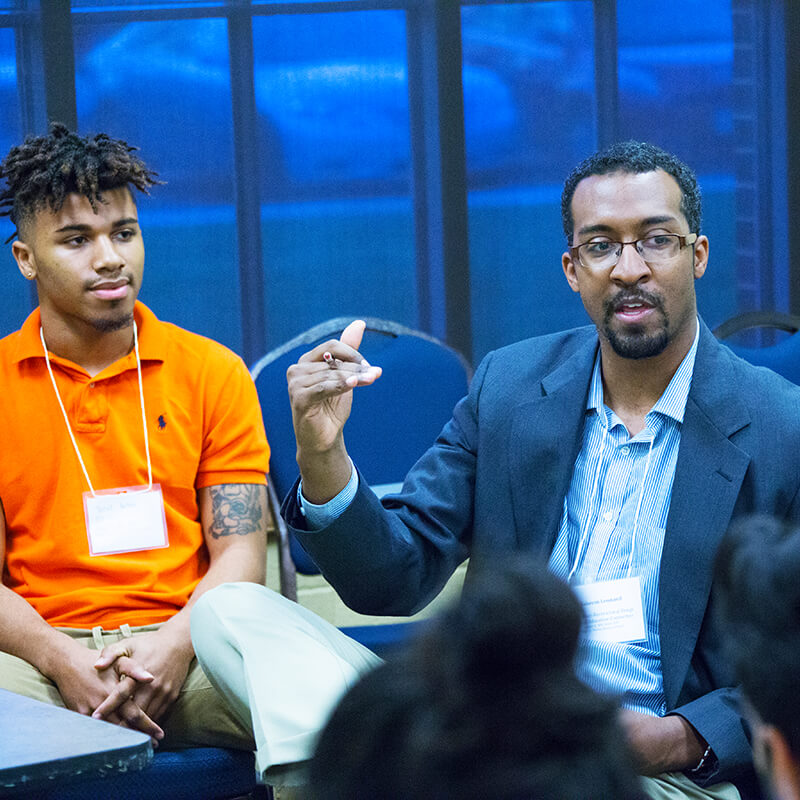
To me, it seemed as if we were a group of experts with diverse perspectives attempting to solve a complex issue. It was like a puzzle and each one of us had a piece to it. We couldn’t solve the problem, but it gave us a glimpse into the difficult nature of policymaking and reform.
I gained an immense amount of knowledge hearing what other students had to say, and I even had some of my opinions changed after hearing several facts about certain topics.
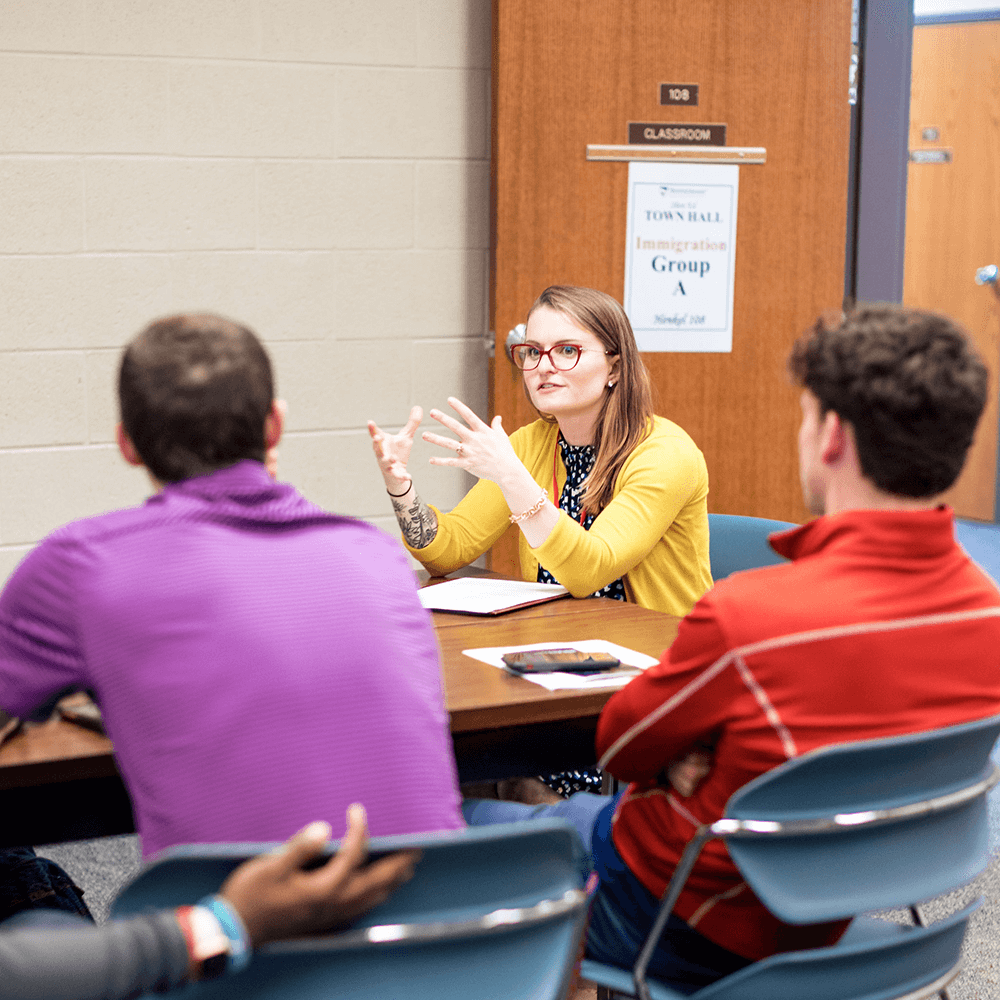
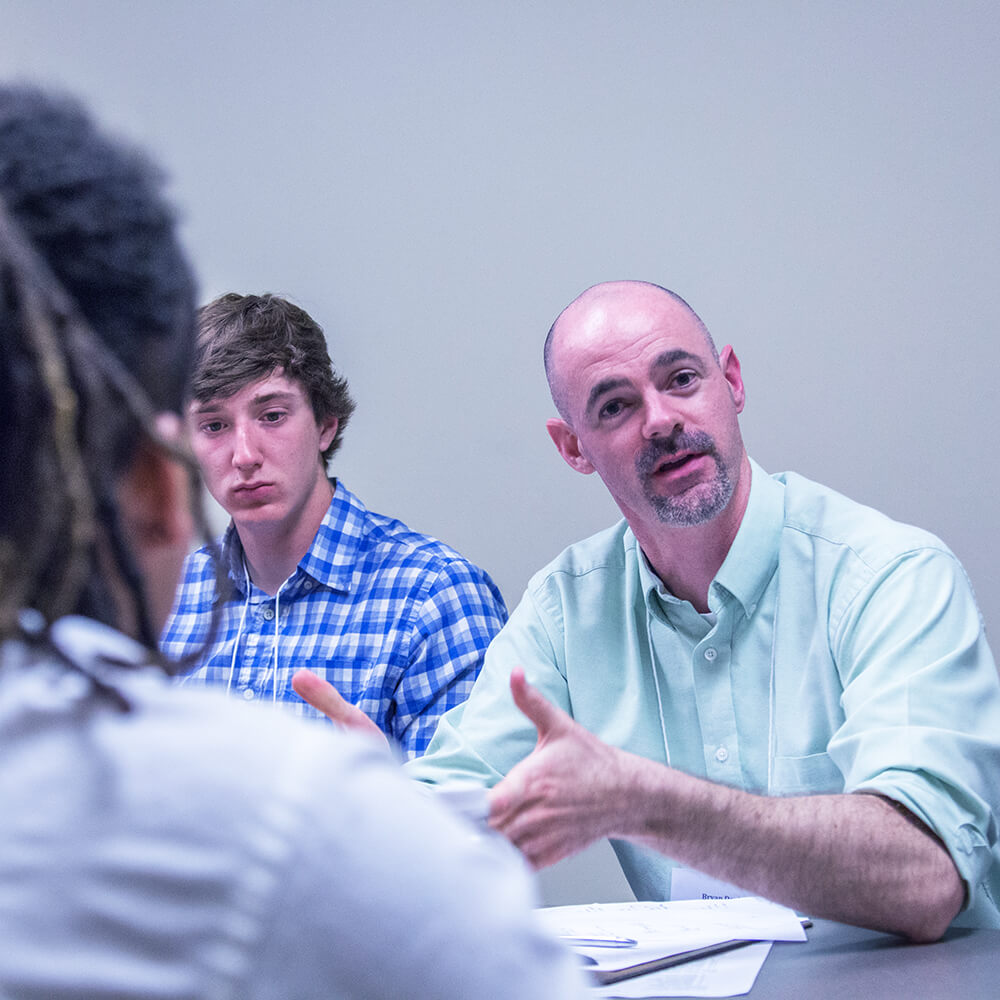
Town Hall was my best experience for my first year, as a freshman. This event was unlike other classes because professionals were able to give us first hand examples that then led to stronger thoughts and ideas about the topic.
Meet our Town Hall Community Consultants
Local community members with expertise on these social issues facilitate the conversations and help students see the practical implications of their perspectives and research.
The consultants were very helpful with developing our solutions more and providing extra resources to look at and use to find more information.
While listening to my peers and the consultants speak about their topics I began to realize how relevant these issues are in the world around me. It takes only a small group like the town hall group to truly make a difference.
I also got good information from the community representatives that I did not know before and it was good to know that there are individuals in the community that
care about this topic as much as we do.
This event was unlike other classes because professionals were able to give us first hand examples that then led to stronger thoughts and ideas about the topic.
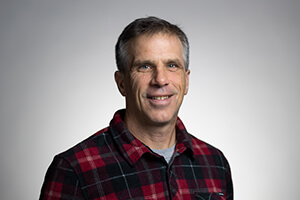
Eric Leonard | Director of General Education
Professor Leonard has published several articles, case studies and two books. The first entitled, The Onset of Global Governance: International Relations Theory and the International Criminal Court. The second entitled, Building Your IR Theory Toolbox: An Introduction to Understanding International Politics. He also publishes and works extensively on the scholarship of teaching.